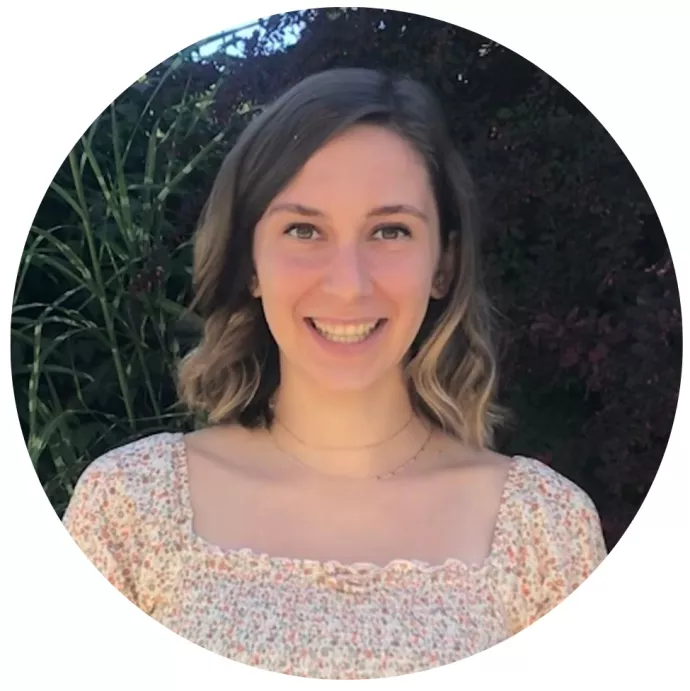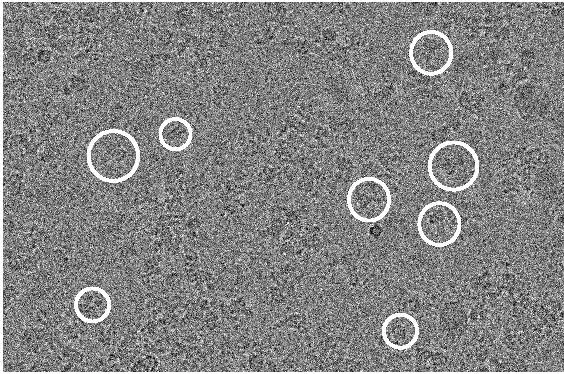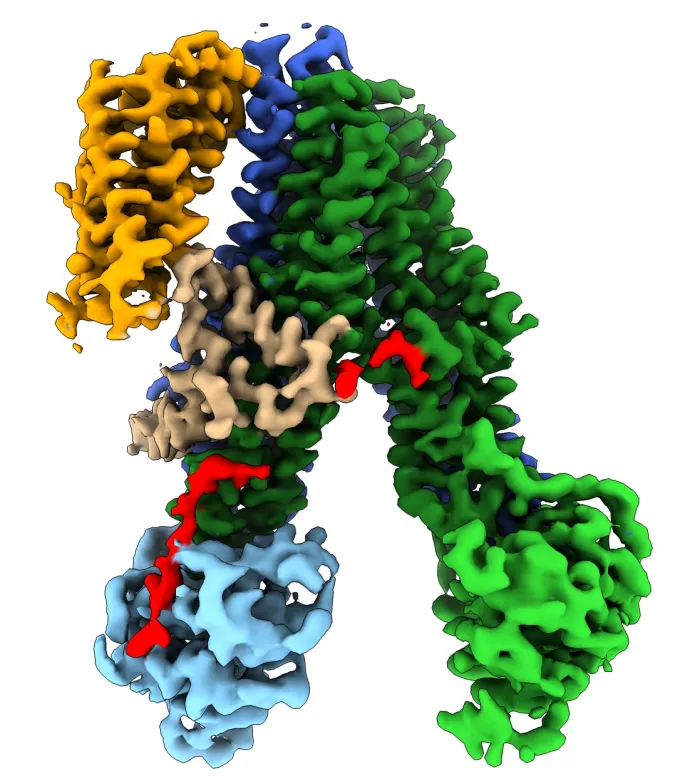
CPS Grad Spotlight - Sarah Bickers
Name: Sarah Bickers
MSc or PhD Candidate: PhD Candidate
Location of Undergraduate Education: Bachelor's of Science, Honours Biochemistry Co-operative Program at the University of Waterloo
Name of the Lab at CPS: Kanelis Lab
Selected Awards:
NSERC Alexander Graham Bell Scholar (Doctoral & Master’s)
Queen Elizabeth II Gradaute Scholarship in Science and Technology
General Motors Women in Science and Technology
Selected Research Contributions: https://scholar.google.com/citations?user=7wMo8bUAAAAJ&hl=en
LinkedIn: https://www.linkedin.com/in/sarah-bickers/
Sarah, please tell us about yourself and your journey as a PhD Candidate!
How did you come to UTM? What interested you to join a lab here?
During my undergraduate degree, I had the fortunate opportunity to work as a Research Scientist in the Kanelis Laboratory for one of my co-operative terms. As a Research Scientist I used many biophysical techniques to understand molecular machines found in cells, called proteins. I was specifically working on the Yeast cadmium factor 1 protein, which is a really exciting molecular machine! The Yeast cadmium factor 1 protein, or Ycf1p, can remove toxic metals from the soil when it’s genetically engineered to be in plants. The goal of my research was to understand how this protein works, so that we can engineer a better version that’s able to uptake more metals at a faster rate and place this new and improved version in plants to use for bioremediation.

I absolutely loved my time as a Research Scientist, so much so, that I decided to return as a graduate student and continue further studying Ycf1p. It was really a perfect fit for me as I was always fascinated in my undergraduate studies by how proteins function and how we can use these molecular machines to our own benefit. Technically speaking, the type of research I perform as a graduate student is known as structural biology. Structural biology focuses on determining the structures of our cell’s molecular machines to understand how they work and function. I use two main structural biology techniques to study Ycf1p. The first is electron cryo-microscopy which involves freezing the protein in a layer of ice and using subatomic particles called electrons to image the protein under a microscope. The second is called Nuclear Magnetic Resonance spectroscopy which is like a protein MRI. The way I like to think of my work is that I try to make protein molecules that are invisible, visible.
The research wasn’t only the reason I wanted to return to the Kanelis Lab though – it was also the CPS community. The staff and fellow researchers were extremely friendly and welcoming and made coming to work something I looked forward to during my time as an undergraduate researcher.
When did you realize that you wanted to pursue a graduate study?
As early as I can remember I’ve always enjoyed mysteries and puzzles, from Agatha Christie novels to minesweeper that was on every PC in the early 2000s. Research is the ultimate puzzle where the solution is still unknown and it’s up to the researcher to ask the right questions and interpret the answers. Developing the skillset to solve these mysteries was important to me and contributed to my decision to pursue graduate school.
But like most students who didn’t have family that pursued graduate school, I didn’t really know what it exactly entailed. My exposure as an undergraduate to research through co-operative education terms as well as talking to my TAs about their life as graduate students, really showed how I can merge my interest in science with my curious nature.
What is your goal when you finish your degree?
Once I finish my degree, I would like to continue pursuing research. I really enjoy coming up with new ideas and plans to tackle research problems. Although I’m not certain whether I would like to continue in academia or industry, I do know I want to continue contributing to the scientific community.
What are some of your achievements you'd like to share?

One of my favourite aspects of graduate school is getting to learn about others’ exciting research as well as share my scientific investigations, and seeing how conversations across science disciplines can lead to new discoveries. In early 2020, I had the opportunity to attend a scientific conference in Innsbruck Austria. While there, I shared the first model of Ycf1p to a group of international protein researchers. I received a Young Investigator Award for my work which had the prize of riding a racecar bobsled with the Austrian Olympic team on the 1964 Olympic track in the alps!
The structure I determined was more rewarding than just a bobsled ride though. The structure of Ycf1p provided information on similar proteins that cause resistance to cancer drugs and antibiotics, and furthered our understanding on how these proteins function. The structure of Ycf1p has also been used by an AI program called AlphaFold to predict structures of similar proteins. These predicted structures can be used by other researchers to provide a structural rationale for their research. Seeing my research contribute to the field has been a really rewarding experience.
* Bickers, S. C., Benlekbir, S., Rubinstein, J. L., & Kanelis, V. (2021). Structure of Ycf1p reveals the transmembrane domain TMD0 and the regulatory region of ABCC transporters. Proceedings of the National Academy of Sciences of the United States of America, 118(21), e2025853118. https://doi.org/10.1073/pnas.2025853118.
Do you have any advice for students considering to pursue graduate studies in research?
My number one piece of advice (or I guess two), is to be positive and patient. Research is very challenging and often doesn’t work the first, second, or sometimes the twentieth time. It’s important to not take setbacks personally and to persevere. There are an army of people here to support you including labmates, other graduate students, your supervisor, and of course family and friends. When things aren’t working in the lab don’t be shy to ask fellow researchers for advice, or family and friends for the needed emotional pick-me-ups.
Graduate school is also a sea of endless possibilities! The flexibility allows us to structure our degree for our ideal job, such as taking scientific journalism courses if we’re interested in scientific communication or improving our presentation and networking skills through workshops and conferences. It’s important as a graduate student to be open to trying new things and discovering new things about you. Most importantly, it’s the time to discover and really evaluate what you enjoy doing for your career.
